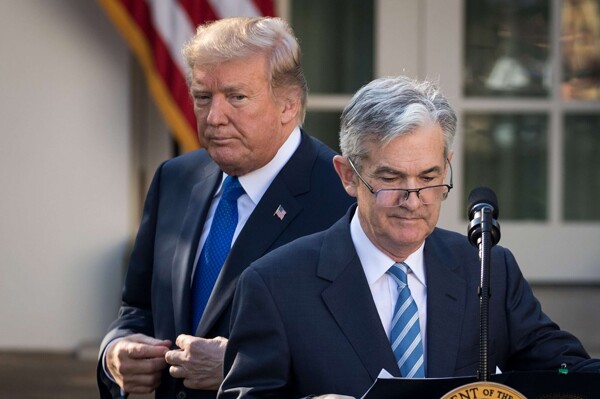
More than 60 percent of those who buy electric cars from the company have never owned a GM vehicle, says Tavel, head of project engineering. These cars drive faster, more smoothly, and as Barra points out, never require a trip to the gas station. In short, it results in a considerable price reduction.
The use of different chemicals in batteries can also reduce costs, and GM is incorporating lithium iron phosphate cells in some cars. The two most affordable electric vehicles in GM's current lineup, the Chevy Equinox and the Blazer, are manufactured in Mexico, and most are intended for import to be sold to Americans.
Their study includes a section for each GM brand where vehicle concepts are devised and developed. Executives see EVs as a great opportunity to introduce GM brands to drivers who might never have considered them before. Cadillac and Chevrolet tend to have weak markets on the coasts, where electric vehicle sales are stronger. "We want to provide options to customers," explains Barra, "we believe that, in the long term, the demand for EVs will increase." The most immediate challenge is figuring out how to sell an electric car in Trump's U.S.
"We have to be careful and ensure that electric vehicle subsidies are reduced in an orderly manner. At a recent meeting, Barra emphasized having invested $60 billion in the U.S. since Trump signed the new trade agreement with Canada and Mexico in 2020 and stated that the automaker plans to continue investing, according to a person familiar with the matter who requested anonymity.
Much of that money went to the production of electric vehicles and battery plants. When the price of goods rises and stock prices fall, as is happening now, it reduces the disposable income of people for major purchases, as well as profits for automotive companies like GM, which need to sell high-margin trucks and SUVs to cover losses from electric vehicles. To make matters worse, Trump's rhetoric is practically the worst marketing strategy for electric cars. Barra has staked her legacy on electric vehicles. Management has made it clear that electric vehicles are very important to the company, and her response is: "If they are the future, we are ready for them."
GM developed what was essentially the world's first modern fully electric car in the 1990s. Kelty acknowledges that his visit with Simcoe was crucial. "We have collaborated with GM more than with any other automaker," mentions Moreno. Now, he alternates electric Cadillacs with gasoline models.
With a unique system for all electric cars, the development costs of new EV models could be reduced. Government subsidies, like those that lawmakers would group under Biden's IRA law, were not considered in that decision, says Reuss. For Barra, electricity is the future.
Electric vehicle batteries require graphite, and 90 percent comes from China. It is the basis that contains all the battery improvements and costs that GM is working on for future models. "If the market wants more EVs, we can produce them," says Tavel. This effort aims to make Mary Barra's grand dream of electrifying GM a reality. She rejected job offers from the company, arguing that GM was not committed to electric vehicles and was only launching some models to meet regulatory requirements.
After Tesla, Kelty worked in startups and hoped GM would be interested in the silicon anode battery materials from the company he worked for. Eventually, GM will make more of its batteries prismatic type, Kelty notes. The so-called reciprocal tariffs from Trump would have further worsened the situation, and his suspension on April 9, along with the president's comments on April 14 about a possible extension for automakers, gives GM executives and lobbyists hope that he may also change his mind about car tariffs.
"We are analyzing tariffs, electric vehicle regulations, and market changes, and simply stating that there are challenges we need to solve," says Paul Jacobson, CFO of GM. Trump has not yet made any decisions regarding tax incentives for electric vehicles, but will likely do so soon. If GM can bring the cost of its electric vehicles closer to that of gasoline cars, sales will skyrocket, he anticipates. But there is a reason not to be so aggressive: after considering development costs, GM loses money on every electric vehicle it sells.
This would bring GM's battery pack costs down to around $100 per kilowatt-hour, a nearly 50 percent reduction from 2023 and a rate that, according to Kelty, is even better than Tesla's. Currently, the battery pack for an electric Chevy Blazer or Equinox costs around $13,000, according to research firm CRU Group. And what is more surprising, GM has lobbied to restrict or eliminate incentives for Americans acquiring vehicles through leasing, according to people familiar with the discussions. It also fueled class struggle by suggesting that automakers raised the prices of gasoline cars to finance their electric vehicle projects.
While incentives for eligible electric vehicle purchases apply only to cars assembled in North America, leases have no such limits. Last year, GM drastically reduced the cost of its battery packs by $60 per kilowatt-hour, a substantial improvement in energy efficiency, Kelty explains. In October, he stated before the Detroit Economic Club that electric batteries increase the weight of cars, do not provide enough range, and overload the electrical grid. The idea was to use the same battery cells and modules for all models...
after overseeing production. "This plant is fully automated," he states. Production prioritized electric vehicles (EV) in March when the plant started manufacturing the new Cadillac Vistiq electric, dubbed by GM engineers as the "baby Escalade." GM is also required to pay the new tariff on foreign parts for all cars crossing the northern and southern borders. In 2025, GM will revive the Chevrolet Bolt, an affordable compact priced at $30,000.
Kelty is trying to make GM less dependent on foreign products, not only for national security reasons but also because it could reduce costs. GM also formed a $625 million joint venture with Lithium Americas Corp. in Nevada to extract lithium closer to home, a move that, according to Kelty, could be crucial for the company's autonomy and supply security.












